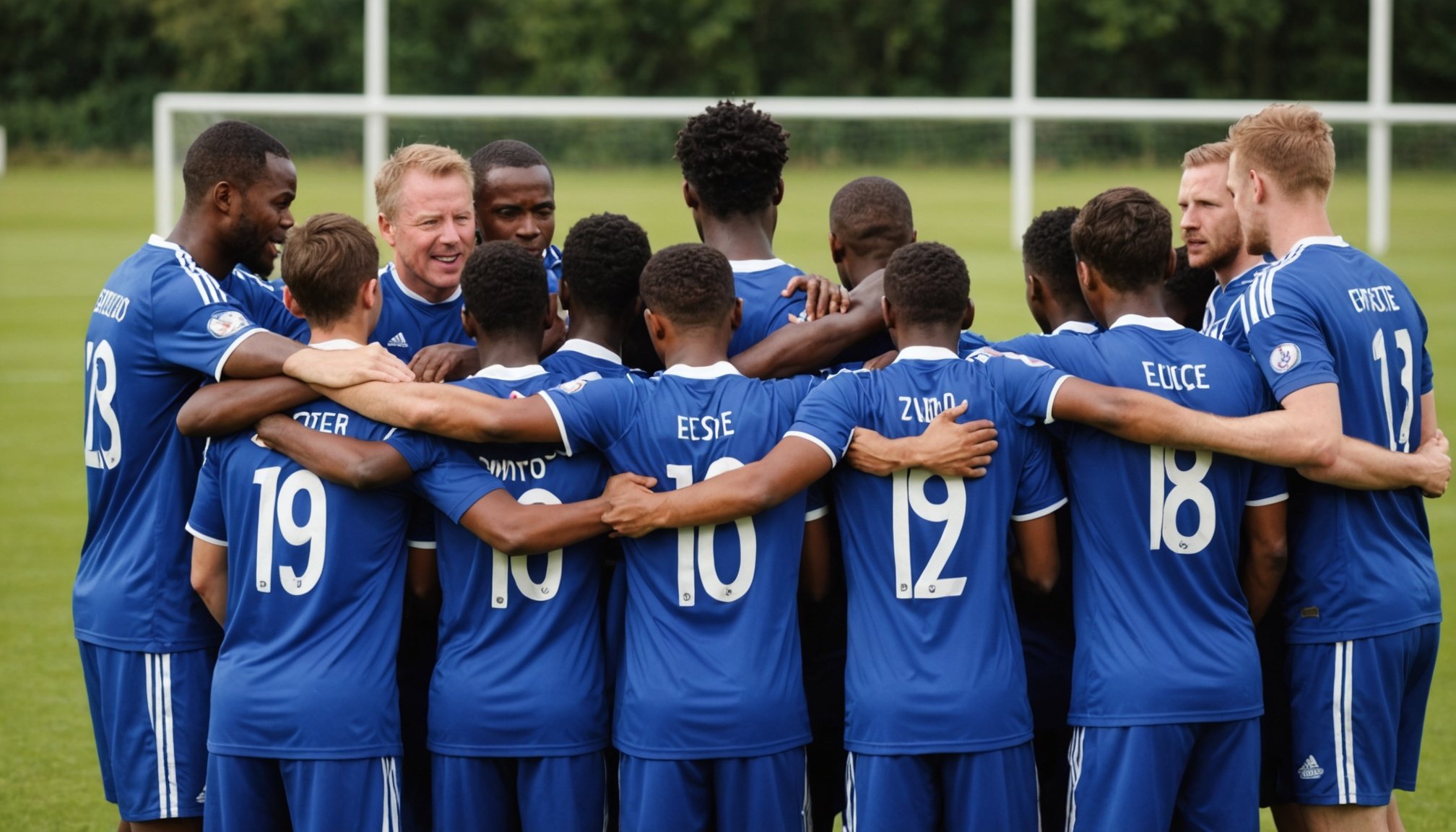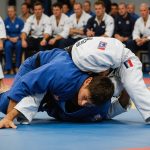Understanding Diversity in UK Football Teams
Diversity in football is a critical component that shapes the modern game. This involves not only a mix of ethnicities and nationalities but also a range of cultural and personal backgrounds among players. The significance of diversity in football teams lies in its ability to foster creativity and bring different perspectives, enriching the team’s overall experience.
Cultural differences among players from various countries contribute uniquely to team dynamics. Some players might hail from regions where the game emphasizes technical skills, while others might come from backgrounds focusing on physical style. These differences can enhance team dynamics, as players learn from each other’s strengths and strategies, contributing to a more adaptable and versatile squad.
Additional reading : Maximizing Game Performance: The Power of Biofeedback for Football Players
Diversity impacts not only team dynamics but also the performance of a team. With a variety of playing styles and perspectives, teams can develop multifaceted strategies, which can be a significant advantage in unpredictable matches. Ultimately, this cultural mosaic in football teams promotes inclusive environments and encourages collaboration, resulting in improved on-field performance and off-field harmony. Understanding these aspects is key for fostering successful and cohesive teams in the football world.
Effective Communication Strategies
In today’s diverse work environment, communication techniques are fundamental to nurturing successful team dialogue. Open communication is crucial, especially within diverse teams, to create a platform where every voice is valued, and ideas are exchanged freely. This inclusivity not only enhances team performance but also fosters innovation and problem-solving.
Have you seen this : Effective Strategies for Football Teams to Tackle Fatigue During Busy Fixture Clusters
One of the critical techniques for fostering inclusive dialogue is active listening. Encouraging team members to listen attentively ensures that everyone’s opinions are heard and considered. Moreover, developing empathy within the team helps in understanding diverse perspectives, which is essential for effective communication.
Utilizing technology is another avenue to enhance team dialogue. Tools such as video conferencing and instant messaging can facilitate real-time communication, bridging geographical divides and ensuring that team members are aligned and informed. Additionally, shared digital platforms allow for collaborative workspaces where ideas can be exchanged and documented, further supporting inclusivity.
To sum up, by implementing effective communication techniques and leveraging technology, teams can build a culture of inclusivity. This not only promotes harmonious team dialogue but also ensures that diverse viewpoints contribute towards the overarching goals of the organization.
Team-Building Exercises for Unity
Effective team-building activities are essential to foster a sense of unity and efficiency in any group. By focusing on cohesion exercises and trust-building techniques, teams can enhance their collaborative skills and working relationships.
Icebreaker Games
An excellent starting point is icebreaker games. These are engaging activities designed to initiate communication among team members who may not be familiar with each other. For instance, the “Two Truths and a Lie” game encourages participants to share personal anecdotes, revealing truths that build trust and empathy while maintaining a playful approach.
Workshops on Team Dynamics
Conducting workshops that focus on team dynamics can help illuminate the roles within a team. These workshops emphasize understanding diverse working styles and respecting each other’s contributions. They facilitate an environment where open communication is encouraged, leading to a more cohesive group dynamic.
Collaborative Challenges
One of the most effective methods for building trust and unity is through collaborative challenges. Engaging activities, such as problem-solving tasks or treasure hunts, require team members to rely on each other and communicate effectively. These challenges not only build trust but also enhance problem-solving abilities and encourage innovative thinking among teams.
Navigating Challenges in Diverse Teams
Diverse football teams often face unique challenges that can hinder their performance if not carefully managed. A prominent issue is conflict resolution, particularly when differences in language, culture, and play style arise. Effective strategies to resolve conflicts include fostering an open communication environment where all team members feel valued. Encouraging regular team meetings can help preempt misunderstood intentions and develop strong interpersonal bonds.
Another challenge is addressing inclusivity barriers within the team dynamics. Inclusivity not only promotes a sense of belonging but also leverages diverse thinking to improve team strategy. To tackle these barriers, teams should cultivate cultural awareness, which helps in understanding and respecting individual backgrounds and perspectives. This can be achieved through cultural training sessions and celebrating cultural events together.
Effective conflict resolution hinges on the understanding of each player’s cultural nuances—a crucial aspect for coaches and managers. By recognizing these nuances, teams can turn potential misunderstandings into learning opportunities. This approach not only improves cohesion but also enhances team performance. Inclusivity, when fully embraced, empowers teams to harness the full range of talents available, ultimately crafting a more harmonious and high-performing unit.
Measuring Team Unity Effectiveness
Understanding how to measure team unity is vital for ensuring success in diverse settings. Various methods exist to assess team cohesion, each providing unique insights into how a team functions together. One common approach is employing team assessments which are structured evaluations to gauge the level of unity and identify any underlying issues. These assessments often involve questionnaires, interviews, and observation of team interactions.
Unity evaluation is also achieved through tracking specific indicators of effective teamwork. These indicators include open communication, mutual support, and shared goals. When team members consistently exhibit these behaviours, it demonstrates a high degree of cohesion and shared understanding.
To analyze a team’s progress, organizations can delve into performance metrics. These are quantifiable measures that provide data on team efficiency, goal achievement, and overall productivity. Key performance metrics could involve tracking deadlines met, quality of work, and innovation levels. By analyzing these metrics, teams can pinpoint areas needing improvement and celebrate their successes.
Ultimately, by utilizing both qualitative and quantitative methods, teams can obtain a comprehensive view of their unity effectiveness, fostering continuous development and enhanced collaboration.
Case Studies and Expert Insights
Delving into success stories of diverse teams in the UK, it’s evident how effective diversity can be embraced to achieve remarkable outcomes. One such success story is in the tech industry, where a company harnessed the power of diversity to drive innovation. By blending various perspectives and backgrounds, they successfully developed a groundbreaking product that won industry awards.
Coaching insights play a pivotal role in facilitating unity within diverse teams. Coaches emphasize the importance of communication as the cornerstone of team dynamics. They propose fostering an environment where every team member feels heard and valued. By encouraging open dialogue and understanding, coaches can bridge cultural differences and enhance collaboration.
Integrating best practices is crucial for cultivating team cohesion. A series of techniques, such as regular team-building activities, culturally-inclusive decision-making processes, and fostering an atmosphere where diverse ideas are welcomed, can significantly bolster a team’s effectiveness. A common practice among successful teams is conducting workshops focused on understanding and valuing the varied backgrounds of team members.
These examples highlight the importance of strategically integrating diverse talents. The combination of effective coaching, communication, and best practices ensures that teams not only operate smoothly but also excel in their respective fields.











